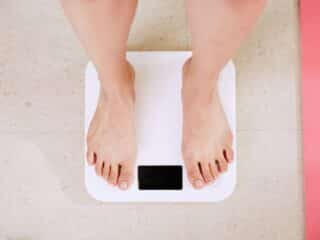
Dangerous Dieting
For the vast majority of people, quick-fix diets do not result in sustained weight loss. Fad diets, like the paleo diet or raw food diet, can even result in long-term health issues. Low-carb diets have long been a popular choice for those looking to shed pounds over the years. However, receiving less than 40% of your energy from carbohydrates has been associated with the greatest risk of mortality, according to recent studies. For truly optimal health, carbs should make up 50% to 55% of your diet. The study shows that although giving up carb-heavy foods such as potatoes and pasta can result in short-term weight loss, the long-term impact has more negative consequences.
Dieting’s Negative Health Effects
When you diet by cutting out necessary food groups, you deprive your body of the vitamins it needs. As the aforementioned study showed, this can have long-term effects, but also a surprising number of effects you’ll see more immediately that could send you to the emergency room. Not only is this bad for your health, but your wallet will also take a hit, as the average ER visitor pays total costs of $1,318, according to a survey from the Medical Expenditure Panel. Save the money and your health by avoiding these unfortunate effects:
- Lack Of Vitamins: To have a truly healthy diet, you need the proper balance of vitamins and minerals, and many diets do not encourage this. For example, eliminating starches will decrease fiber intake and B Vitamins, both essential for a healthy body. Even focusing on protein-heaving foods can stress and dehydrate the body, leading to acute kidney failure.
- Slowed Metabolism: Any diet will have require a dramatic reduction in caloric intake, which can certainly lead to successful weight loss, but will also slow metabolism. In the long term, a slower metabolism means that overall weight loss will plateau. When a dieter reaches the plateau, they may be discouraged and revert to previous eating habits, throwing the body into confusion.
- Toxins In Your Body: Cleanses and detoxes are very popular in dieting, but can be more harmful than helpful. Organs in the human body, such as the liver, already naturally detoxify our body. Moreover, the accelerated weight loss and burning of fat that comes with these methods can lead to ketosis. Ketosis is a condition in which a high level of ketones are in the blood and urine that can be toxic.
How To Lose Weight Healthily
This isn’t to say that you shouldn’t lose weight if you need to. Many people need to lose weight in order to be healthier, but instant diets are not the solution, especially for those who have other health issues. As of 2016, approximately 38.9% of people aged 18 or older with disabilities were obese. While these people may need to lose weight, they should turn to balanced diets and getting the exercise they can rather than fad diets that could harm them. Eating food in controlled portions from all food groups is the best way to lose weight. It may be a slower process, but it will be healthier.
If you’re looking to lose weight and are hesitant to start the journey, consult a doctor or dietitian today. Just remember to do what is best for your body, to be brave, and that being skinny does not always equate to being healthy.






